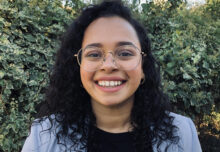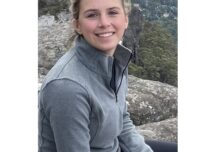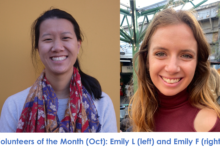Despite major changes in gender roles and expectations of gender-appropriate behaviour of men and women in the past decade, we know that fundamental aspects of traditional gender roles continue to exert an influence on trends in health-related behaviour (1). In Men’s Health Week 2018, we reflect on the particular challenges faced by male- identifying people who come to Australia seeking refuge.
At every stage through the life course, men die at higher rates than women (4). Around the world, men experience a higher burden of chronic disease including ischaemic heart disease, cerebrovascular disease and type 2 diabetes mellitus (4). Men are more likely to engage in risky lifestyle behaviours including smoking, physical inactivity, risky alcohol consumption; have a poor diet and more likely to take their own lives (5) (1).
Among Australian men in general, the barriers to poor health among men include being less likely to seek treatment from a general practitioner or other health professional, and having fewer supports and social connections (6). Australian statistics illustrate that men demonstrate lower health literacy than women (7), even on male-specific health issues (8) (1). Despite being more likely to be diagnosed with bowel cancer, only 37 per cent of eligible Australian men participate in screening programs (9).
One third of refugee and humanitarian entrants to Australia are adult men (1). By definition, all refugee men will have escaped actual or threatened persecution. Some have been combatants in war; others have been imprisoned and perhaps tortured, and a small number have been child soldiers or arrived as unaccompanied minors. There are some subsets of refugee males who are at particularly high risk of poor health outcomes. Former soldiers are likely to have been exposed to more injuries and traumas than other refugees (9). Elderly men may be dealing with some consequences of the refugee experience in illness. Finally, men separated from their families – especially those who are in the process of seeking asylum in Australia or who are on Temporary Protection Visa –tend to be cut off from vital support networks and live with the anxiety of their uncertain status (2).

Source: Canadian Men’s Health Foundation - https://menshealthfoundation.ca/wp-content/uploads/2016/10/7-health-facts.pdf
There is a paucity of data regarding the specific challenges facing male refugees, however researchers have highlighted a range of risk factors for poor health outcomes. Some of these include: poor diet, depression and low self-esteem; loss of socioeconomic and occupational status, poor sexual health knowledge, risky drug and alcohol use; social isolation and overall poor health literacy (6). For many men seeking refuge in Australia, their pre-migration role of being the breadwinner is central to their understanding of masculinity. The enormous cultural shift upon migrating to a society with more fluid gender roles can be unsettling for these men, compounded by the inability to work and thus provide for one’s family (7) (8). The triad of physical, mental and social upheaval renders refugee and asylum seeker men immensely vulnerable to poor physical and mental health outcomes.
We at The Water Well Project do our utmost to help improve health literacy among men of refugee and asylum seeker backgrounds with our health information sessions. We have informal, small group discussions about men’s health issues. In these sessions, we emphasise the importance of preventative and screening programs, and empower individuals to request interpreters to overcome linguistic barriers to care. Our volunteer healthcare professionals de-stigmatise help-seeking behaviour, and reiterate that looking after one’s own health is consistent with some more traditionally masculine roles of being the protector of the family unity.
To request a free health information session for a community group in Melbourne, Geelong, Sydney or Hobart, contact: https://www.thewaterwellproject.org/contact-us/
References:
- Men's Health Literacy in Australia: In Search of a Gender Lens. Peerson, Anita and Saunders, Margo. 2, 2011, International Journal of Men's Health, Vol. 10, pp. 111-135.
- Men’s health: time for a new approach. Baker, Peter. 2008, Physical Therapy Reviews, p. DOI: 10.1080/10833196.2018.1452562.
- The correlates of chronic disease-related health literacy and its components among men: a systematic review. Davey, Jeff, Holden, Carol and Smith, Ben. 589, 2015, BMC Public Health, Vol. 15, pp. DOI 10.1186/s12889-015-1900-5.
- A systematic review of the factors associated with delays in medical and psychological help-seeking among men. Yousaf, O, Grunfeld, E and Hunter, M. 2, s.l. : Health Psychology Review, 2015, Vol. 9.
- Australian Bureau of Statistics. Adult literacy and life skills survey, summary results. Canberra : Australian Bureau of Statistics, 2006.
- Australian Institute of Health and Welfare. Cancer In Australia. Canberra : Australian Institute of Health and Welfare., 2017.
- Correa-Velez, Ignacio. SettleMEN: Health and settlement among men from refugee backgrounds living in South East Queensland. Melbourne : La Trobe University, 2011.
- Byrne, Mark. The other 50% - Refugee Men's Health. Sydney : NSW Refugee Health Service, 2006.
- Health status and use of health services among recently arrived men with refugee backgrounds: a comparative analysis of urban and regional settlement in South-east Queensland . Ignactio , Correa-Velez, et al. 2011, Australian Journal of Primary Health, Vol. 17, pp. 66-71.
- Murdolo, Adele and Quiazon, Regina. Key issues in working with men from immigrant and refugee communities in preventing violence against women. Melbounre : White Ribbon Research Series, 2016.
- We Are Not Here to Claim Better Services Than Any Other: Social Exclusion among Men from Refugee Backgrounds in Urban and Regional Australia. Correa-Velez, Ignacio. 2013, Journal of Refugee Studies, Vol. 26, p. 163.




